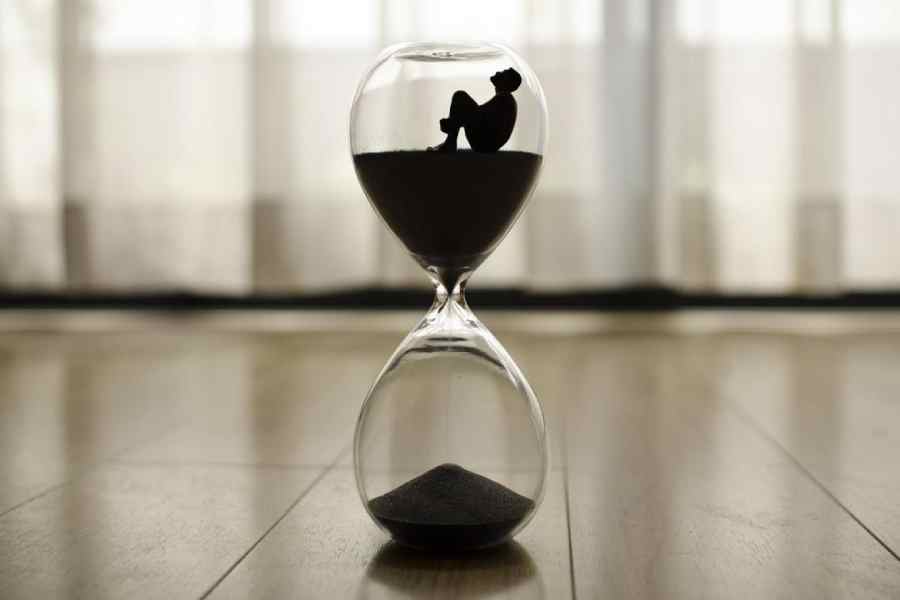Elusive accuracy
Sir — For centuries, humans have been curious about how long they will live. A digital entrepreneur has come up with an Artificial Intelligence-powered app called ‘Death Clock’, which analyses personal data such as age, body mass index, diet, exercise patterns and stress levels, geographical location as well as lifestyle habits to calculate when and how an individual might die. The app has become especially popular among health enthusiasts and financial planners for its personalised predictions and tips to evade the Grim Reaper and ensure longevity. But with the Death Clock not factoring in the possibility of death from accidents, say from traffic collision or toppling furniture or even homicide, the jury’s still out on the accuracy of its predictions.
Drishti Nagar, Delhi
Greater risk
Sir — According to a recent report, earning women in India are at a greater risk of facing domestic violence than their unemployed counterparts (“Higher risk”, Feb 10). This is a travesty of the global norm. Education is considered one of the remedies to curb domestic violence. Indian culture demands that women be docile and prioritise the family’s needs and men have ownership over their spouses. A working, financially independent woman is not considered ideal.
Anthony Henriques, Mumbai
Sir — Most cases of intimate partner violence in India go unreported. Domestic violence can be of many kinds — physical, emotional and sexual. One would think that spousal abuse was more rampant in the past. Unfortunately, surveys show that there has not been much improvement since then.
Research has highlighted that a combination of factors like addiction, lack of education, and mental health issues in males can lead them to perpetrate violence against their partners. Women have been forced to endure domestic violence owing to the lack of financial independence, concern for children, and fear of retaliation from partners.
Vinay Asawa, Howrah
Sir — The alarming rate of intimate partner violence — educated and working women of India are at greater risk — indicates the patriarchal bias of Indian society. Marital rape, coercion for money and trafficking are some of the implications of domestic violence. Domestic abuse being reported by women celebrities goes to show that education or economic and social clout cannot save women from IPV. Strengthening legal remedies, including the proper implementation of the Protection of Women from Domestic Violence Act, 2005, and inculcating gender ethics at the school level can help address this grave issue.
Prasun Kumar Dutta, West Midnapore
Same culprit
Sir — I agree with Debarati Bhattacharya’s argument in her article, “Feminism for all” (Feb 5), that men’s rights are often ignored in our society, which should aspire for equality for all sexes. The deliberate misuse of certain women-centric laws remains a matter of concern. Men get harassed by the same patriarchal institutions that suppress women. This needs to be addressed holistically. The amendment of laws to protect the rights of both men and women is the need of the hour.
Soutik Hati, Jhargram
Poignant reunion
Sir — The report, “Sister’s goodbye to WW trooper, 80 years on” (Feb 10), which narrated the story of an American World War II trooper, Sergeant Yuen Hop, who went missing in Germany during the war and whose mortal remains were returned after 81 years, was poignant.
The news story also carried a thought-provoking message for warmongering statesmen to stop their hateful narrative against immigrants. The researchers must be lauded for their initiative to dig out the remains of Hop and three others who went missing during the war.
Brij Bhushan Goyal, Ludhiana
On the rise
Sir — Life Insurance Corporation of India, India’s biggest insurer, has profited remarkably in the third quarter that ended in December 2024 as a result of a reduction of expense ratio (“LIC profit rises 17%”, Feb 8). The significant increase proves that no other insurance company can give LIC competition at the moment. It is hoped that LIC will remain consistent in changing its product and diversifying the channel mix to serve the needs of its customers in a dynamic environment.
Shyamal Thakur, East Burdwan
Early exit
Sir — It was disappointing to learn that the ongoing slide in temperature marks the last lap of winter in Calcutta (“Season’s ‘last’ Celsius dip”, Feb 8). The chill has almost vanished from the city’s air. During the daytime, most have stopped wearing woollen clothes and many are feeling the urge to switch the fan on.
Sourish Misra, Calcutta
Sir — Kashmir has experienced a shorter winter season this year due to the adverse impacts of climate change. Glaciers are melting rapidly, raising concerns about a deepening environmental crisis. If this trend continues, rivers and streams will face a serious threat. Effective climate conservation must be of the highest priority.
R.K. Jain, Barwani, Madhya Pradesh
Highs and lows
Sir — The 48th International Kolkata Book Fair, which concluded last Sunday, scripted many highs. It recorded a footfall of 27 lakh and books worth Rs 25 crore were bought during the 12-day event. Unfortunately, many booksellers and publishing houses did not get accommodation this time.
Khokan Das, Calcutta










